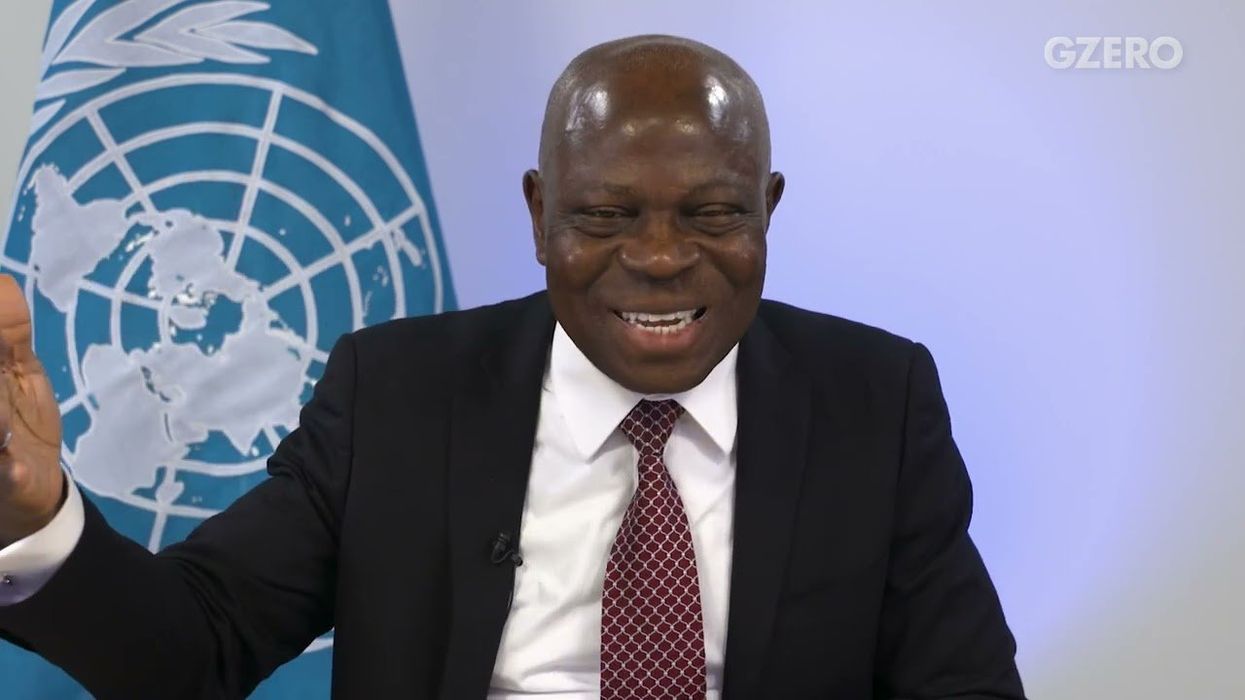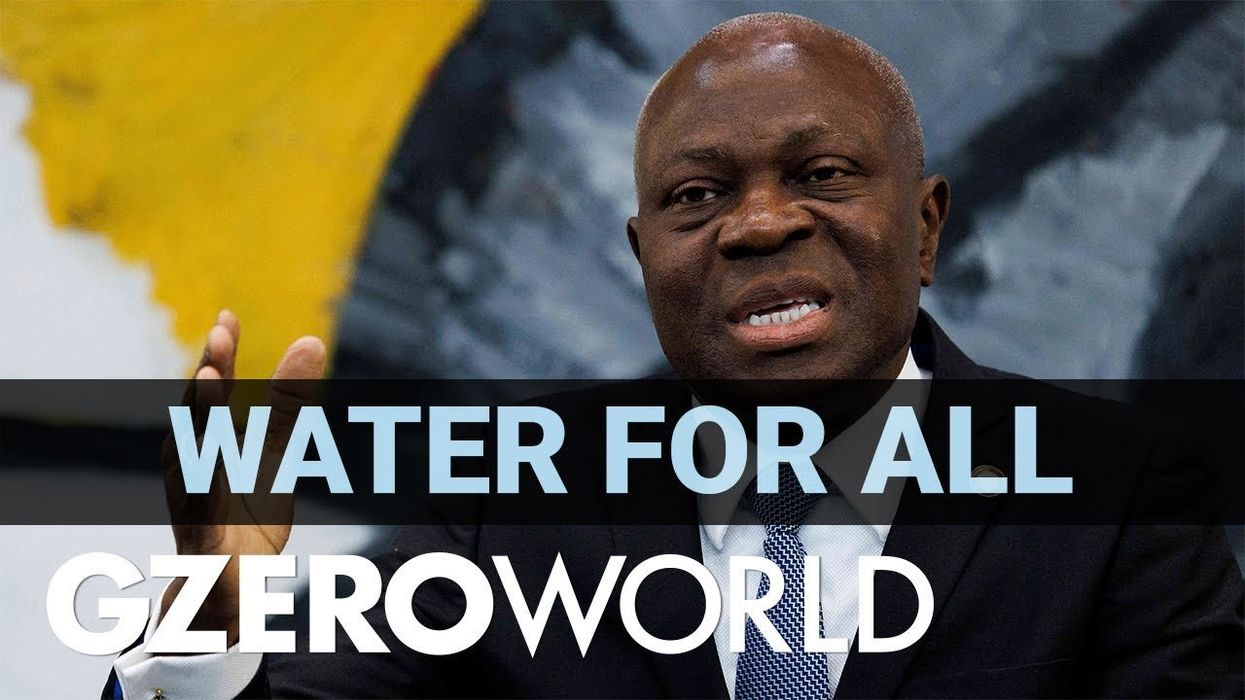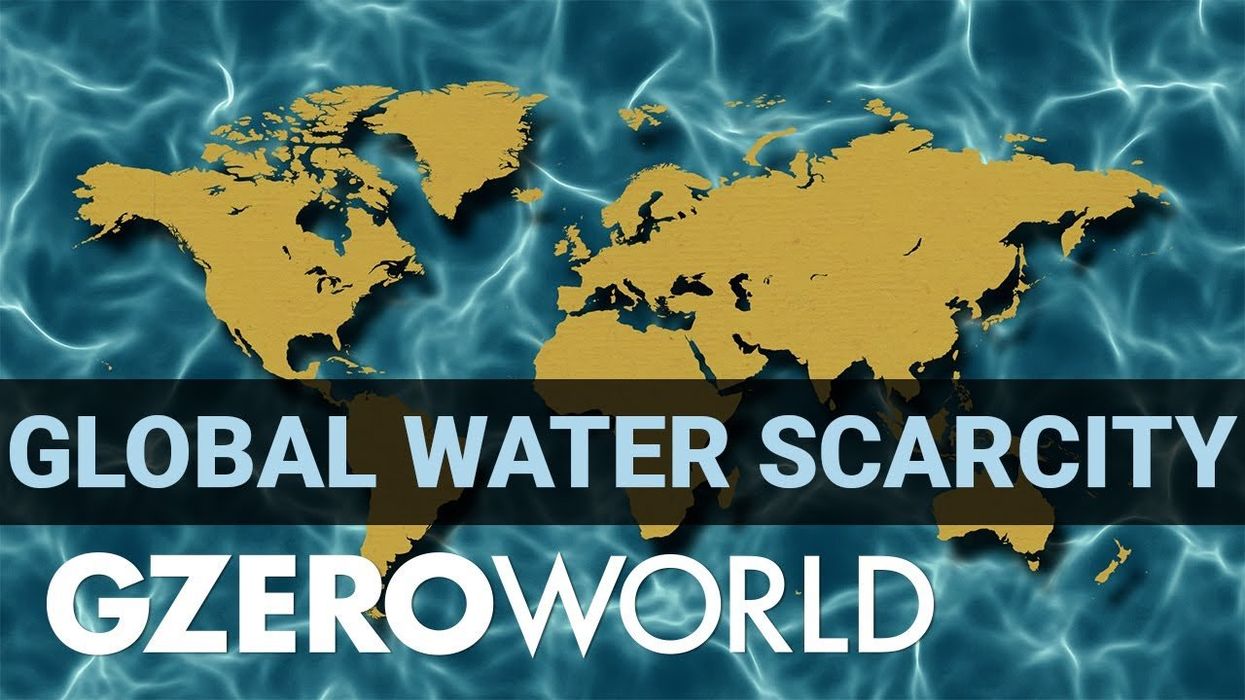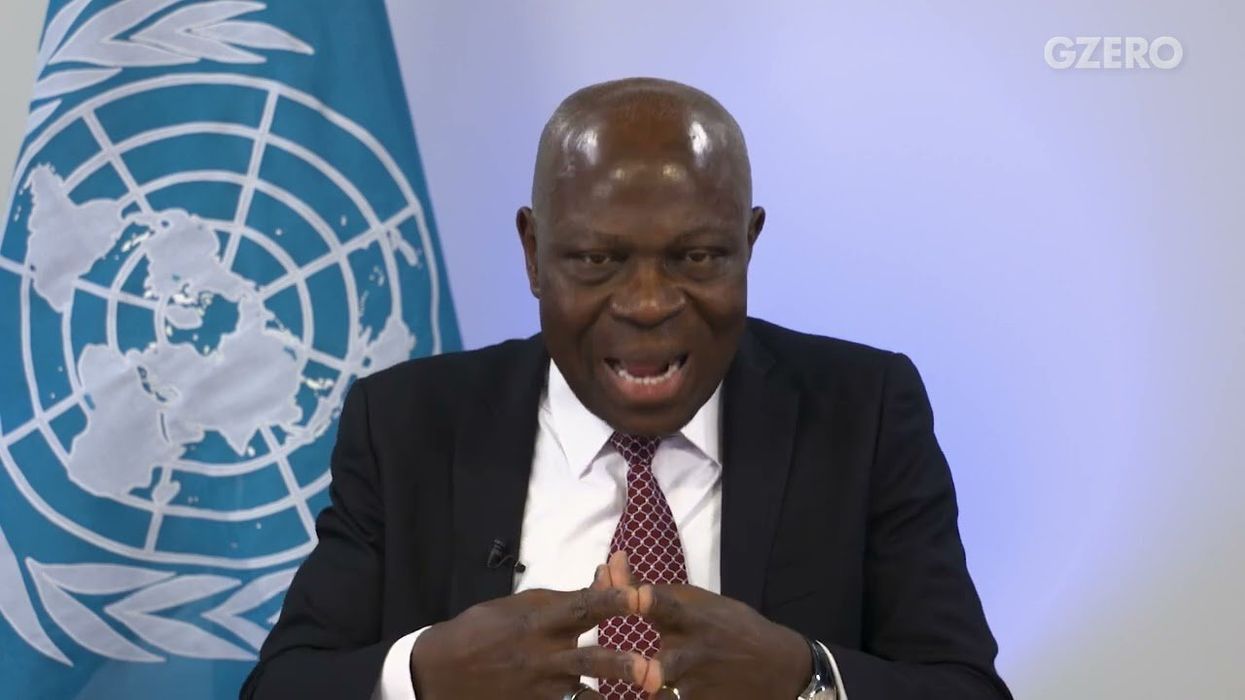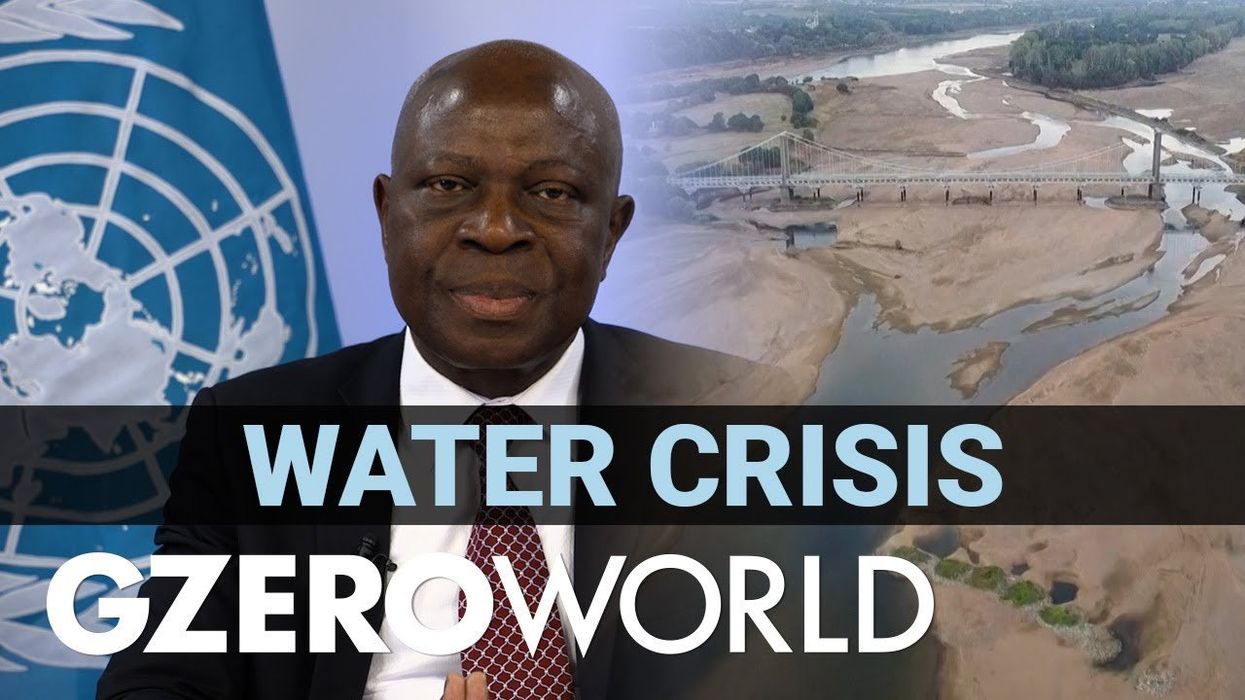GZERO World Clips
The urgent global water crisis
Water is something none of us can live without, but billions of people take for granted. On GZERO World, UN-Water Chair Gilbert Houngbo and Ian Bremmer discuss the global water crisis, the impact of climate change, and solutions for providing future genereations with better access to clean, drinkable water.
Apr 09, 2023
